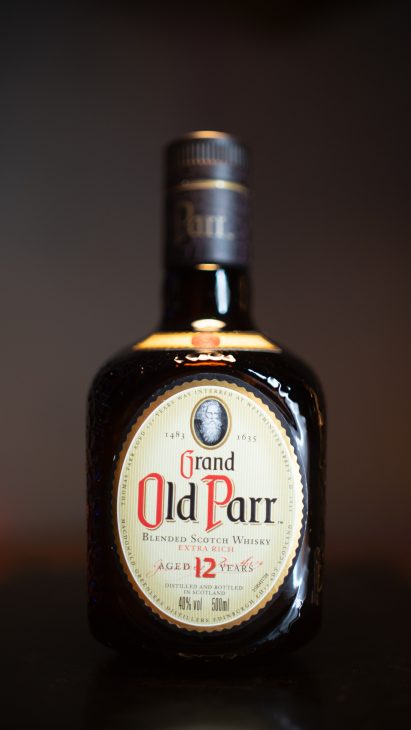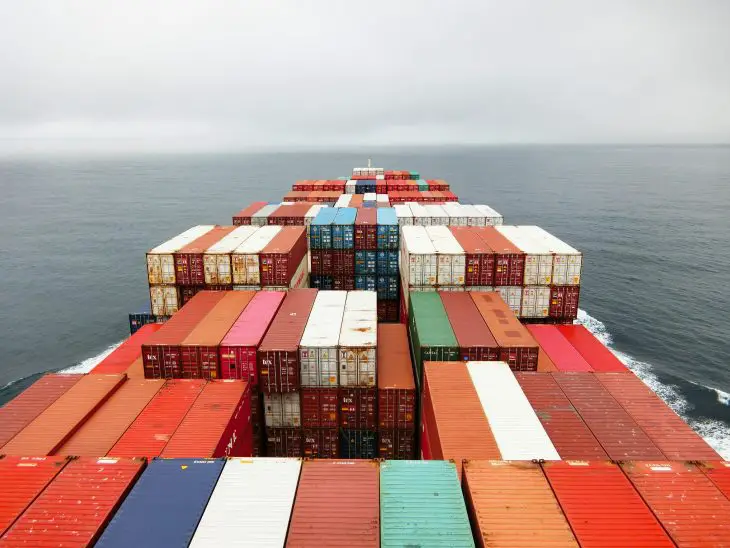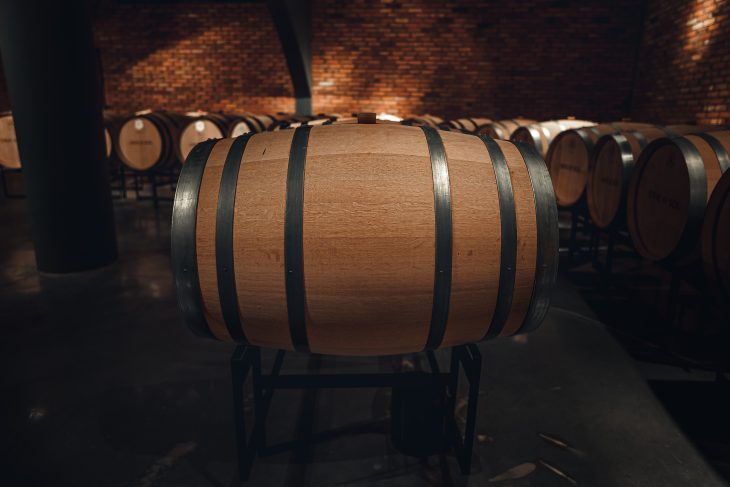Hey there! This site is reader-supported and we earn commissions if you purchase products from retailers after clicking on a link from our site.
As a general rule of thumb, you may have noticed that scotch whisky is a lot more expensive than bourbon whiskey. While you will find outliers that are as expensive as each other or similar in price, in general, it is absolutely true that scotch is retailing for a lot more money than bourbon is. Scotch drinkers presumably hate how expensive it is, yet to put your mind at ease, there are a lot of good reasons as to why single malt scotch whisky is so darn expensive.
Table of Contents
- What Is Scotch Whisky?
- 10 Reasons Why Scotch Is So Expensive
- Which Is better Out Of Scotch And Bourbon?
- FAQs On The Price Of Scotch vs Bourbon

What Is Scotch Whisky?
Scotch whisky is made in Scotland and has legal specifications that must be followed before it can be labeled as authentic scotch. The main ingredient has to be malted barley, and the rest can be up to you. Single malt scotch uses only malted barley as the grain of choice.
Scotch must also be made in a single distillery in Scotland and cannot be imported before production has been completed. Alongside this, scotch must all be aged in oak casks and oak barrels for a minimum of three years. Realistically, a lot of scotch is left to mature for a lot longer. Scotch is matured as the longer it spends sitting in an oak barrel, the more time the wood has to break down the rough and harsh flavors of the alcohol. This results in a smoother and tastier drink with more complexities in terms of flavor.
There are a whole bunch of legal protections to ensure scotch whiskey is produced and bottled in Scotland in the UK – they’ve really nailed it down and cornered the market on “Scotch”.
The high level process of making scotch isn’t “off-the-wall” dissimilar to any whiskey – here’s a quick reminder of how Whiskey is made:
10 Reasons Why Scotch Is So Expensive
While there are a lot more reasons and variables that affect how expensive scotch is, I have narrowed it down to 10 main ones that are not too unpredictable. The way that the economy works globally makes it so that things can fluctuate in price drastically depending on what is happening. However, these reasons will always drive up the price no matter what the economy is like.
Those 10 Reasons Scotch Is So Expensive:
- Importing
- Barley
- Aging Process
- High Demand
- Luxury Product
- Taxes
- Marketing Fluctuates Prices
- Oak Barrels
- Storage
- Evaporation
Importing
As mentioned, scotch has to be made in Scotland for it to be deemed authentic. While this may not prove much of an issue for Scottish and English people, anyone in the US is going to have to pay a fair bit more for this on the store shelves as the import price is not something to ignore.
For any retailer to order this product, they will have to pay a fee for it to be imported from overseas. This fee can be quite a lot as it is time-consuming, labor intensive, and takes up space on a plane or boat. By the time you add these fees onto an already premium-priced drink, you are looking at an expensive bottle of single malt whisky.

Barley
While a lot of whiskeys are made from corn, such as straight bourbon, Scotch whiskey is made from barley. Corn is cheap and easy to grow and work with, which is why the prices for bottles made from corn can be quite low. However, barley is more expensive to buy, farm, and harvest which adds to the price. On top of this, it also requires a much longer and more detailed process when it comes to making alcohol from barley. Time is money, so the longer something takes for a product to be made, the more expensive the end result will be.
Aging Process
Genuine scotch has a rule that it must be aged for at least three years for being sold. This means that the companies that produce scotch are not getting a quick and immediate return on their investment. To more simply explain it, these companies are not immediately being paid for the scotch as they have to wait three years at least before they can sell it. So to compensate for having to wait this long, they sell it at a higher price.
Not only are they charging for the scotch tasting better as it has aged, but they are also charging for how long they had to wait to finally sell the product. Older whiskeys generally sell for a higher price because of the aging process. While scotch is aged for three years and has a steeper price placed on it, you can only imagine the price for a drink that has been aged for 21 years.
High Demand
One of the most obvious reasons for anything in the world being expensive is high demand. Essentially, if the number of orders for a product starts to get higher than the realistic production for that product, the price can be raised. If everyone wants scotch whiskey, there will not be enough to sell as it takes a while for it to be made.
Raising the price will help handle the cost of everything if your stock was to run out, and is also a good way for companies to make a larger profit from their product being so good.
Luxury Product
Single malt scotch is loved for its spicy flavor and slower aging process than the standard bottle of whiskey. When it comes to alcoholic drinks, the more effort and love put into the craft will yield a much better end result.
Whiskey is no different, the people who make scotch and bourbon are very well trained and have dedicated their lives to this craft. Because of how difficult it is to produce perfect scotch whiskies, a luxury premium price can be placed on the product as it is difficult to make and not everyone can do it.
When drinking whiskey, you might think of the price as you paying for a product, but when you look at it from a different perspective, you are also paying for a service that the company provides of making the perfect single malt that you drink. If you are wanting a drink with a smoother taste than the others, you need to be comfortable with paying the higher prices.
Taxes
When taxes are mentioned, you may immediately think about the importation taxes placed on any product that has been imported from abroad. And while this is true, there are also a lot of other taxes placed on scotch and bourbon.
Depending on where you live in the US, state tax and alcohol tax will vary. State tax is how much you will pay that goes towards the state, and alcohol tax is an extra fee that you pay for buying something with alcohol content.
This is not a direct reflection of the quality of the product and is instead placed on the item as it is not required in daily life. If items used in daily life had a higher tax fee, then a lot of people would complain. However, as alcohol is seen as recreational and not a necessity, the government can make a profit off of it by implementing the tax.
Marketing Fluctuates Prices
This is very closely related to how high demand affects the retail price of an item. If the retailer or company that provides this scotch can put together a very strong marketing campaign or advertisement for this item, demand for the product will rise. This is when the company can raise the prices accordingly and collect a profit from this.
This is also used as a way to offset the cost of marketing and advertising as that can be quite expensive too.
Oak Barrels
As mentioned, for the aging process, scotch is placed inside of an oak cask or an oak barrel. These scotch barrels are left alone for a long time so that the wood can break down the rough flavor of the scotch, leaving it a lot smoother than it initially was.
As you might have guessed, these barrels play heavily into the overall price of the scotch that you drink. They must be obtained by a manufacturer and fit a very specific specification before they can be used. Bourbon barrels are a lot less expensive as they are not used for as long and are not as high quality.
Oak barrels are expensive to make and are made from high-quality materials. Both of these already drive up the price of just a singular barrel by a lot. This is already expensive, yet scotch manufacturers require a staggeringly high number of oak barrels for a single batch, which can be insanely expensive.
While you would expect them to recycle barrels, as the aging process takes so long, they need to buy more barrels every time they make a new batch unless it has been 3 years since their initial batch has started aging. Eventually, a manufacturer will have a perfect rotation of barrels so they no longer need to buy more, but the damage has already been done as the barrels they have purchased will likely cost them a lot.
More premium companies will also use a second type of barrel to help further develop the flavor of the scotch. After aging for three years, the whiskey can be placed into a secondary barrel made from different woods to help further the flavor to a more refined and high-quality taste.
Storage
Going hand-in-hand with the expense of barrels, you need somewhere to store these barrels. The scotch manufacturers obviously cannot allow the barrels to just sit outside and be at the mercy of weather conditions, they need a safe and consistent location to store their barrels while in use so that the whiskey is left to age on its own.
The price of storage will vary depending on where they are. If a manufacturer is trying to rent a storage location in the middle of a city, it will be a lot more expensive than any other alternative as cities cost a lot to own property in.
However, if the company was instead wanting to buy some land in the country and develop their own storage location, it will be a fair bit cheaper for them. No matter where the company chooses to store their barrels, it is going to cost them money which in turn will make them raise the price of the scotch whiskey.
Not only do they have to own/rent the land that the barrels age on, but the company will also have to pay for upkeep and general bills. The storage area will need power and water, which already will have a monthly bill. Yet, on top of this, the temperature and environment need to be controlled to keep everything at a stable and optimum level, which also costs a lot of money per month.
All of this needs to be done before the batch can even be sold so any company starting out will have to have a large sum that they can dip into before they get a return on all of their investments.
Evaporation
Despite being last on the list, this certainly is not the least important reason for why scotch is so expensive. When you look at the expenses for the barrels, storage, and ingredients, you are only looking at what is spent at the start of production.
Over time, the alcohol in the barrels and in the entire process will eventually evaporate. From a single barrel, this might not seem like the end of the world. But, when you have 400 barrels that have all lost a certain volume of whiskey due to evaporation, the loss of money is certainly noticeable.
Companies obviously do not get a refund for what they invest if some of their product is to evaporate, the profit is instantly gone and there is nothing they can do about it. Therefore, the rest of the product that is still around is marketed at a higher price to make up for anything lost due to evaporation.

Which Is better Out Of Scotch And Bourbon?
Just because it is more expensive, does not mean that single malt scotch whiskey is better than straight bourbon. Price is only there to make up for what was put into the process of making the product. Whiskey is good in general no matter what kind, whether it is a single malt, Canadian whisky, or high rye bourbon.
If you like something that is relatively cheap per bottle, then that is great. Price does not always determine quality so do not assume that scotch is better just because it is more expensive. Try it yourself and see if you like it.
FAQs On The Price Of Scotch vs Bourbon
Among the plethora of different reasons why scotch is so expensive, the most obvious one is the quality and production of the drink. The whiskey must be aged for 3 years before being sold, and also needs to be imported from Scotland. This costs a lot of money so each bottle has to be sold at a higher price to make up for it.
Scotch is getting more expensive as taxes are rising, and import prices are also getting higher. The price of everything (including land to store the oak barrels on) is increasing while the living wage is not, so everything seems to be more expensive.
Scotch is a sub-type of whiskey and is significantly more expensive than the other types such as Irish whiskey and bourbon.
Recommended Reading
Will Whiskey Freeze And Can You Keep Whisky In The Freezer?
Whiskey is a delicious and popular drink best served with ice. However, you may be wondering, will whiskey freeze?
Does Whiskey Go Bad and How Long It Lasts?
While it is common to know that whiskey is aged for an insanely long period of time such as 10, 18, or even 21 years, you may wonder if it is possible for whiskey to ever go bad
How To Drink Whiskey Without Burn? Answered
While the rise in popularity of whiskey is another conversation, let's discuss how you can drink it without your mouth and throat feeling like you have drank liquid sandpaper.
Vodka Vs. Whiskey | Six Key Differences
Vodka and whiskey are both popular spirits. But what's the difference between vodka vs. whiskey?
Barley Vs Malted Barley: Differences When Making Whiskey
Whiskey is made from a variety of ingredients that all play an important part in how the drink turns out. Some of these ingredients are fermented grains...
Jack Daniel’s Bottle Sizes and Prices
Alongside the changes in Jack Daniel's bottle sizes, there are also understandable price changes. If you love Jack Daniel's whiskey as much as many other people do, learn more in this article.

